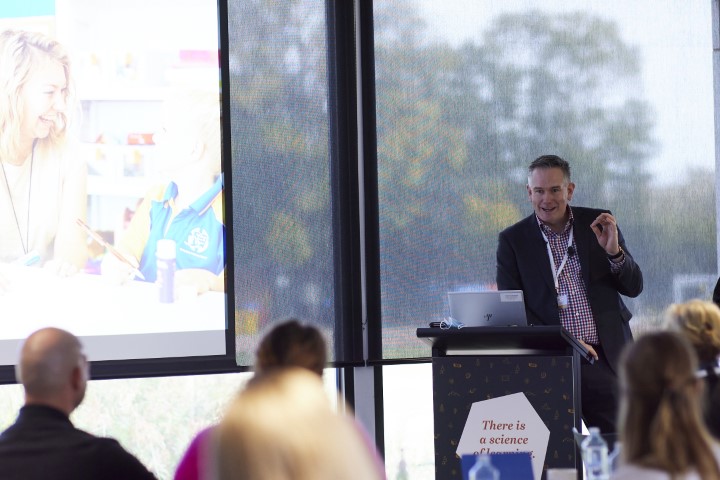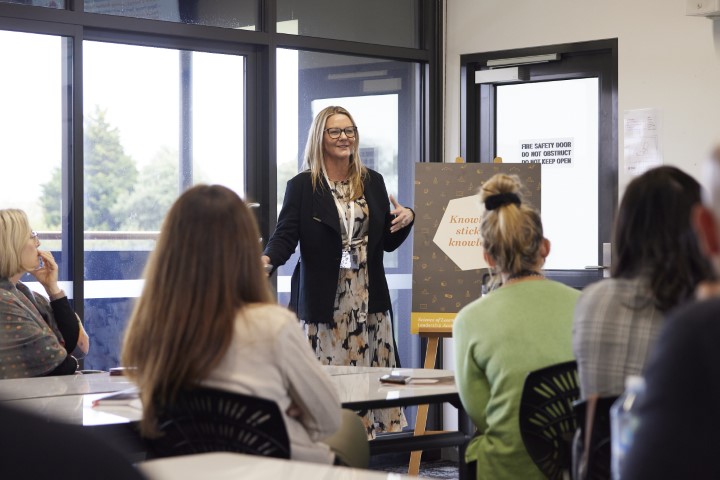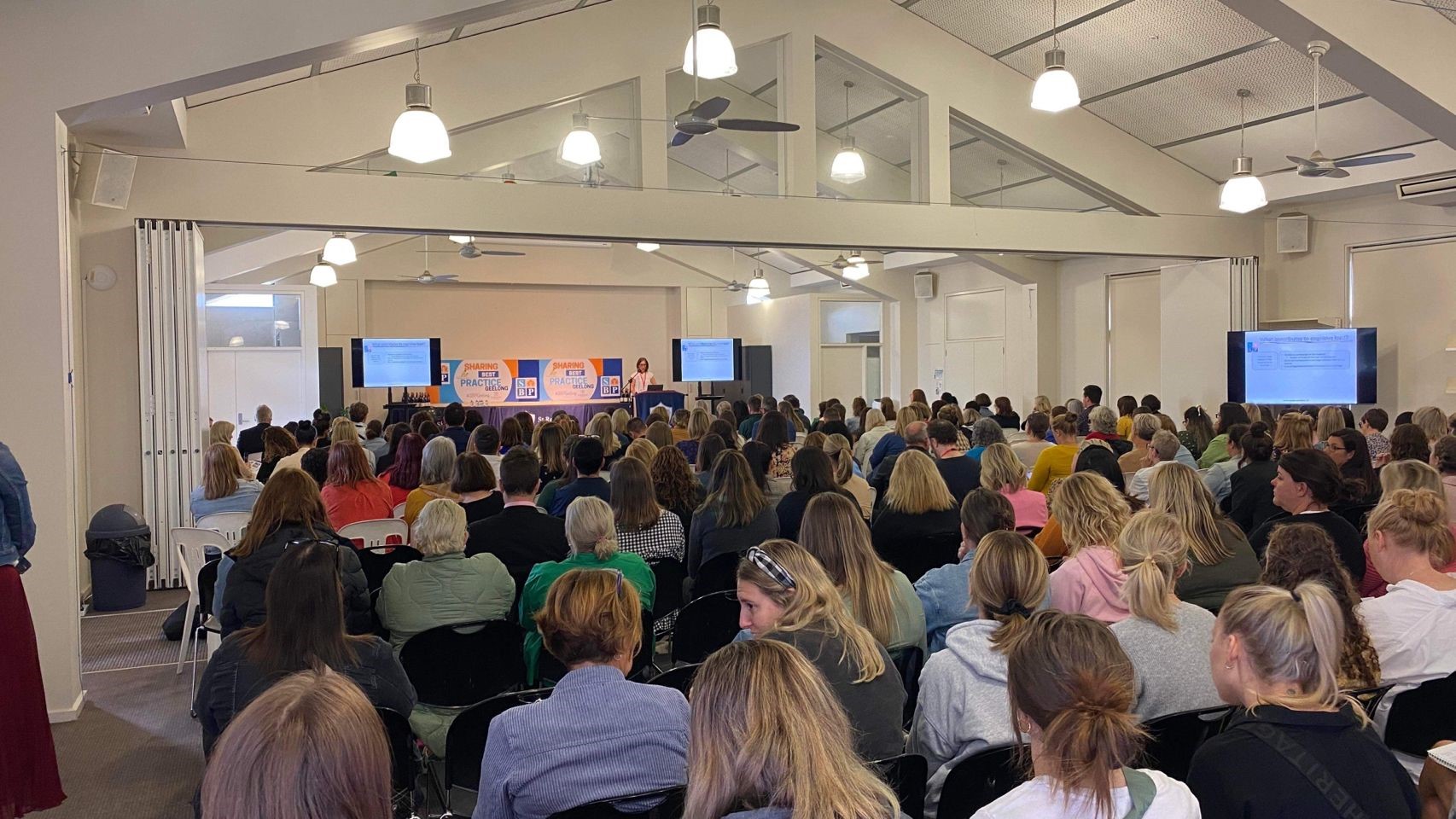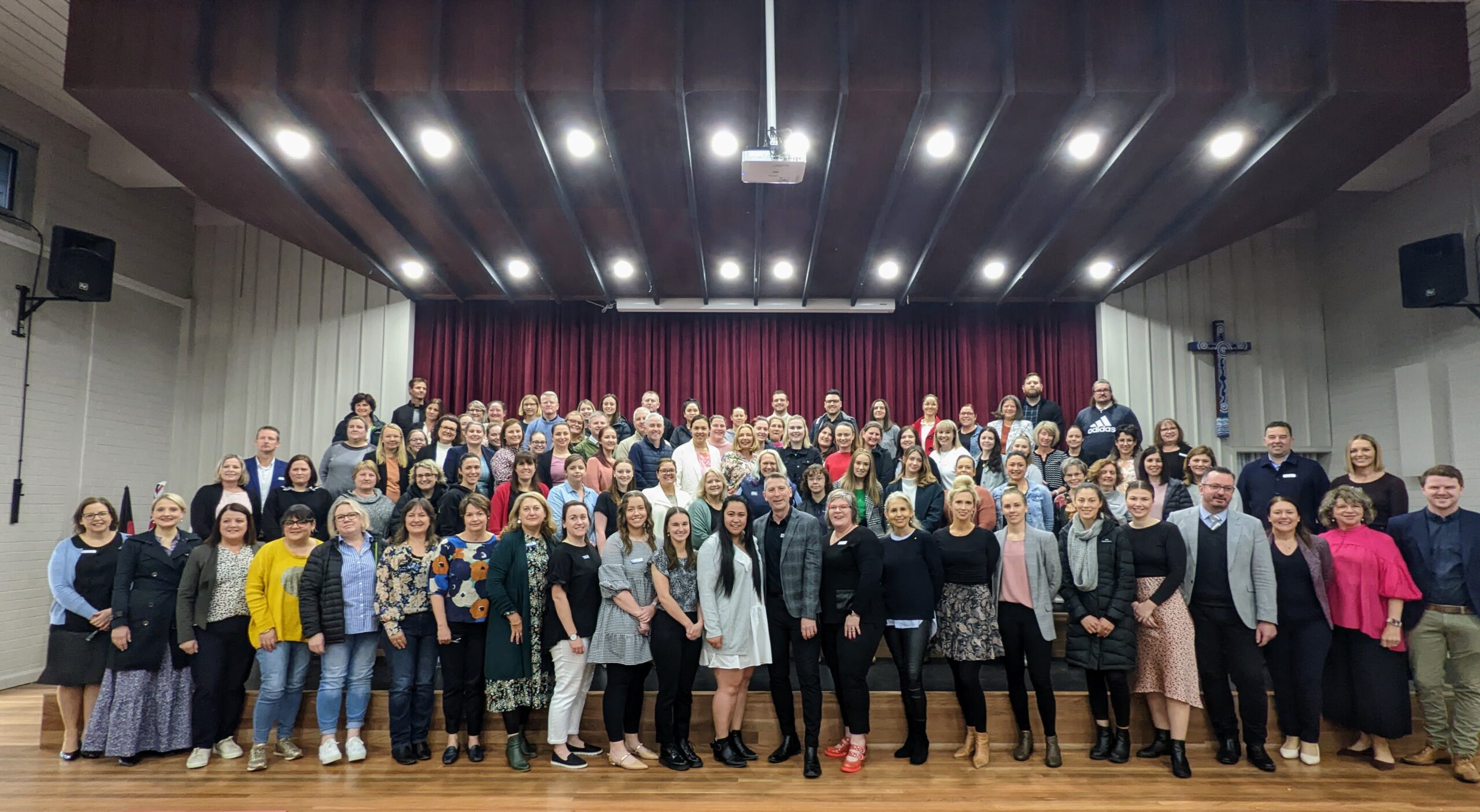Catalyst featured in national Science of Learning event
Catalyst continues to gain national interest, featuring in a national education event focused on building knowledge and practice in implementing and sustaining Science of Learning informed change in schools. The Science of Learning Leadership Accelerator (SOLLA) event was hosted by Primary Focus, the Crowther Centre and Knowledge Society and facilitated by Ollie Lovell. It brought together enthusiastic teachers, leaders and system representatives from across the country, with leading education experts including Pro. Pamela Snow, Dr. Jenny Donovan, Dr. Lorraine Hammond and Toni Hatten-Roberts.


Ross Fox, Director of Catholic Education Canberra and Goulburn presented a keynote on the system change of 56 schools to a Science of Learning backed teaching approach, through Catalyst. Watch the full presentation below.
Reflecting on the Catalyst journey so far, Mr Fox spoke to the challenges of managing pedagogical change at scale, and the successes the system has achieved in 18 months.
“This event allowed us to showcase the terrific work happening at each of our schools to ensure every child has access to a quality education,” he said.
“It is great to see the interest in Science of Learning based teaching and learning in schools across Australia, and I hope our story can assist schools to implement their own evidence-based approaches.”
Mr Fox warned that educators are defining the teaching profession in a totally unsustainable way, comparing it to the vastly different medical profession.
“We’re saying, here’s your classroom after four years of education at a university where they’ve probably taught you critical and comparative approaches, not the reading science and the learning science – choose your own curriculum.”
“And then you’ve got an eight year trained doctor, who when you go in to see them, they have a scripted diagnosis path facilitated by interaction with a computer. When they find out you’ve got something that needs antibiotics, they don’t whip out the back and say, ‘oh, just get some and I’ll just mix up some antibiotics for you’. There’s a whole industry that validates the efficacy of the treatment,” Mr Fox said.
So, what can we as educators learn from this? Watch part 3 below to learn more.
To this end, Mr Fox said that it was important to understand that the teacher, not the student, is the most important learner in our learning system – because when we know better, we do better.
“In our context, we did a lot of research and reflection on what it meant to deliver exceptional learning experiences. It all boiled down to excellence in curriculum (What we teach), pedagogy (How we teach it) and assessment (How we know the student has learnt it).”
Another key point in Mr Fox’s presentation was that explicit teaching played a core role in student learning.
“At the core of what I think we should be trying to do as educators is teach the most efficient way possible. Because every minute that the student hasn’t learnt something, they have missed an opportunity to learn the next thing and I believe very strongly that means we’ve always got to ask what is the role of explicit teaching in this pedagogy or direct instruction, i.e. teaching first.” he said.
Thoughout the event, SOLLA participants engaged in presentations, discussions, and targeted workshops on evidence-based models for change in both Primary and Secondary contexts. Every participant will be supported to develop their own action plan to implement in their school.
For more information on the Catalyst program, visit the About page or reach out to a member of the team.
Watch the full presentation below –
Part 1 – Introduction and context (6min)
An introduction to the Catholic Education Canberra Goulburn context, and the journey to understanding and shaping the learning approach for the system.
Part 2 – Why the Science of Learning? (6min)
Mr Fox explains the rationale for a Science of Learning backed approach for teaching and learning.
Part 3 – Reflections on the Science of Learning (11min)
A deeper dive into why Ross Fox believes the Science of Learning should inform CECG’s teaching and learning approach.
Part 4 – Reflections on the Science of Learning cont. (6min)
A continuation of the deep dive into why Ross Fox believes the Science of Learning should inform CECG’s teaching and learning approach.
Part 5 – Leadership and managing change (3min)
Mr Fox discusses the considerations for change management and leadership when implementing system-wide approaches for teaching and learning.
Part 6 – Our journey so far (7min)
Mr Fox reflects on the CECG journey to implementing an evidence-based teaching approach across the system.
Part 7 – Conclusion (6min)
A summary of the key points presented and considerations for teachers and leaders for implementing practice change at scale.


